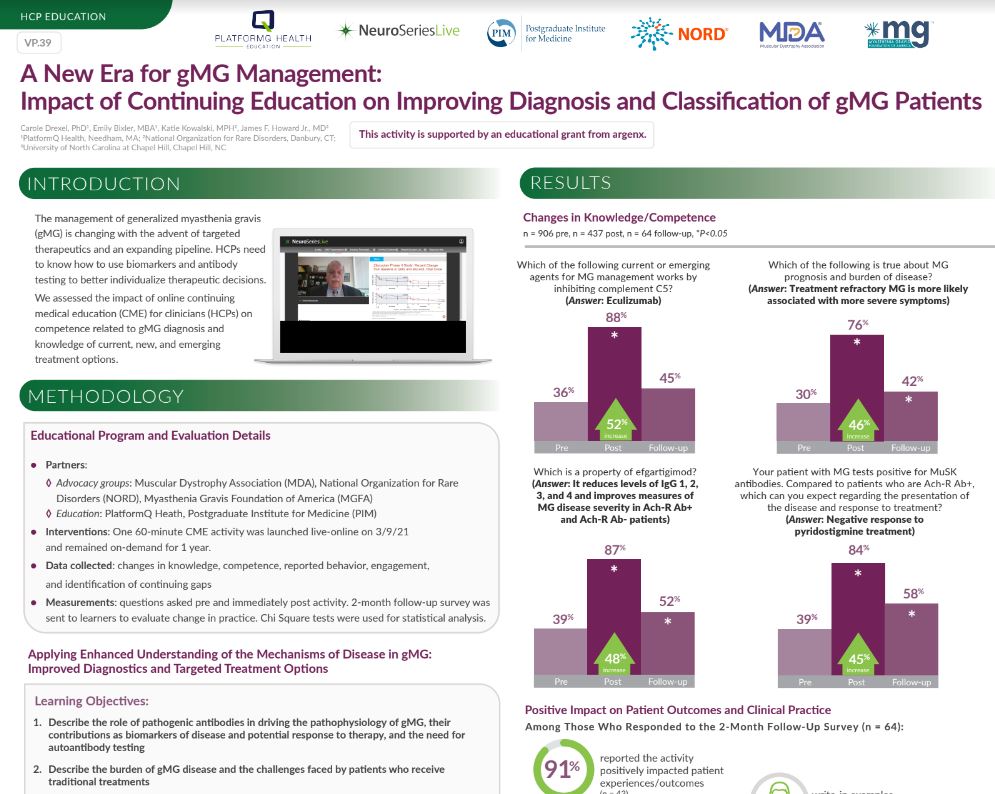In the face of a rapidly shifting landscape of targeted therapies for treating gMG, PlatformQ Health, the National Organization for Rare Disorders (NORD), and the University of North Carolina at Chapel Hill collaborated to develop online CME education about the management of this disease.
Led by expert faculty, including James F. Howard, MD, Professor of Neurology, Medicine and Allied Health of the University of North Carolina at Chapel Hill and Nicholas J. Silvestri, MD, FAAN, Associate Professor of Neurology at the University of Buffalo Jacobs School of Medicine & Biomedical Sciences, the session covered enhancing the mechanisms of disease, improved diagnostics, and targeted treatment options.
The learning objectives included:
- Describing the role of pathogenic antibodies in driving the pathophysiology of
- gMG, their contributions as biomarkers of disease and potential response to therapy, as well as the need for auto-antibody testing
- Exploring the burden of gMG disease and the challenges faced by patients who
- receive traditional treatments
- Understanding the mechanisms of action, efficacy, safety, and place in therapy of emerging biologic treatments
- Examining the correlation between auto-antibody status, prediction of therapeutic response, and symptom improvement
The CME session was offered live with a Q&A session at the end, and was recorded and available on demand afterwards. Based on pre- and post-activity polling questions, PlatformQ Health, NORD, and the University of North Carolina presented a poster at the 27th International Hybrid Annual Congress of the World Muscle Society assessing the impact of the continuing education on improving diagnosis and classification of patients with gMG.

Click here to download the full poster.
Of the 906 learners – including physicians and advanced practitioners – who attended the CME program, 91 percent reported the activity positive impacted patient experiences and outcomes, while 88 percent reported the activity positive impacted clinical practice. Learners appeared highly engaged, with 84 write-in comments, including:
“I am more aware of the pitfalls with seronegative gMG and other rare antibodies.”
“I am advising patients on clinical trials available and asking them to maintain a daily living diary.”
“I was able to share optimism regarding therapies that will soon be available.”
Polling questions also showed a demonstrable improvement in clinician competence when answering questions about use of emerging agents, understanding gMG prognosis, and the burden of disease.
Ultimately, post-test and participant surveys demonstrate a positive impact of live and on-demand online CME education on the awareness of gMG diagnosis, burden, and prognosis based on biomarkers and management. The session outcomes also made it clear that further education is needed on topics ranging from gMG diagnosis to strategies to individualize therapy as well as the role in treatment of FcRn targeted agents.
